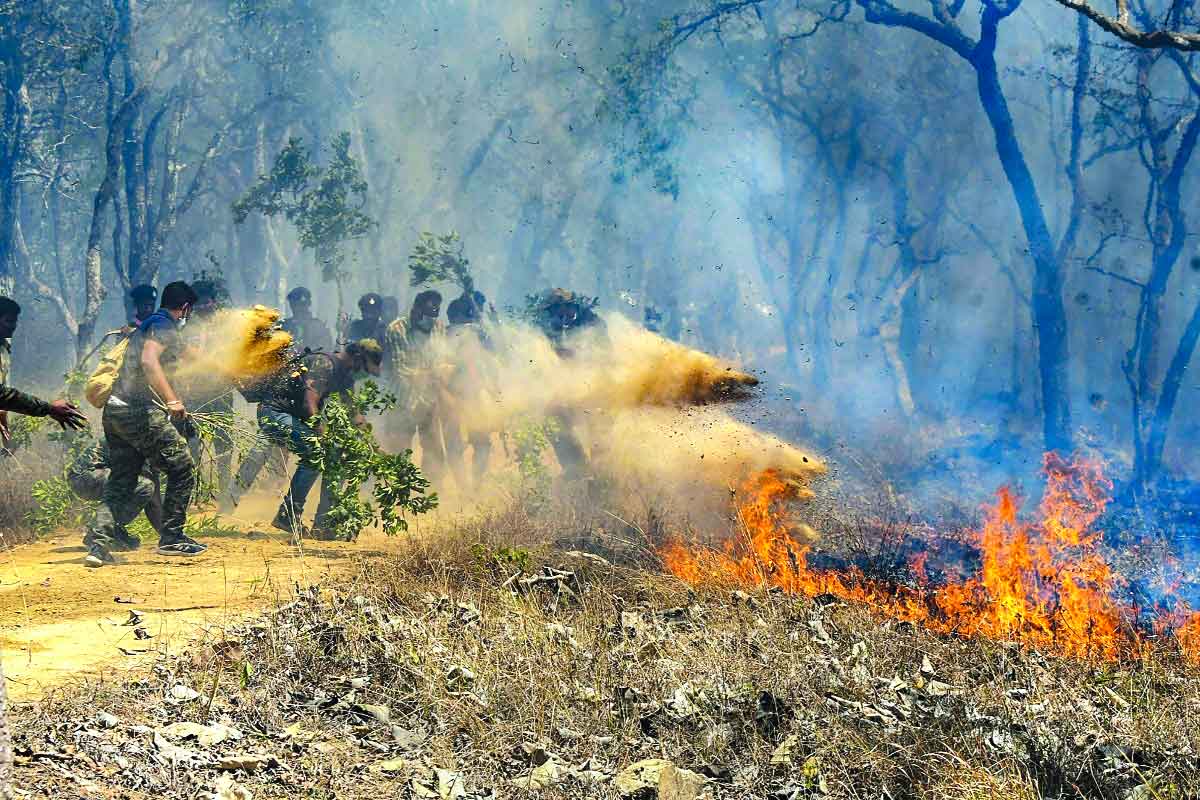Frequent forest fires in the Nilgiri biosphere mean tighter monitoring and tracking climate change
The massive forest fire that engulfed Bandipur Tiger Reserve in Karnataka may have abated for the moment but we have to tackle a bigger ecological crisis that’s threatening the region. And that is the forests in these areas, though not traditionally prone to twig fires, are becoming increasingly susceptible to them. About 372 fires were reported from different green zones in Karnataka over just two days. Neighbouring Tamil Nadu fared no better with 415 cases being reported, a majority of them from the Mudumalai Tiger Reserve. In the case of Bandipur, the devastation is appalling. While authorities and activists debate whether the fire was “accidental†or “intentionalâ€, what fuelled it seems to be the fast-growing lantana weeds, which are highly inflammable and are mushrooming fast because of climate change in the region. According to the National Remote Sensing Centre at ISRO, a massive 10,920.92 acres of the forest area have been burnt. And till the Indian Air Force (IAF) deployed two MI-17 helicopters that sprayed gallons of water on affected areas, the blaze could have had a devastating scale. We still do not how much wildlife we have lost, though most species are likely to recoup and recover their density over time. More damaging is the erosion of the ecosystem that is home to many reptiles, moths, animals and birds alike. It will take years to regain what we lost.
The fire demonstrates loopholes in forest management that need to be attended to on a war footing. For example, the reserve lacks basic fire lines. There aren’t enough fire watchers, usually employed by the forest department in the summer. Local forest officials reportedly ignored satellite warnings and centralised information systems sent by the Indian Forest Survey. And most shockingly, Bandipur allegedly did not have a dedicated field director and was managed by a person holding dual posts who was stationed in Mysuru. So clearly, a mechanism to ensure the overall preservation of the reserve is non-existent. Bandipur is a wake-up call that forest fires can no longer be considered a seasonal affair and the burning issue should force correctives rather than die down with the headlines. Larger issues that need attention immediately include the impact of climate change, dry weather conditions, wind movements, lack of rain and dry kindling from trees. The biggest check needs to be on human depredations in the forest that include deforestation, the continued practice of lighting fires to clear fields for cultivation, indiscriminate scattering of cigarette butts and other combustibles. There has to be a political will to break the timber mafia-forest official nexus that is given to vandalism, one of the reasons for the fire cited by the conservator of forests. Of course, all this calls for a bigger spread of resources, beginning with the pay of forest staff and their daily-wage handlers. We must remember that Bandipur is home to the tiger. And with the neighbouring Rajiv Gandhi National Park and the Mudumalai and Wayanad Wildlife Sanctuaries, it forms the vast Nilgiri Biosphere Reserve, India’s most significant bio-geographic zone, sharing the wilderness of the Western Ghats, the Nilgiris and the Deccan plateau. If we begin to lose it, we may lose our sustenance and oxygen sink.


























